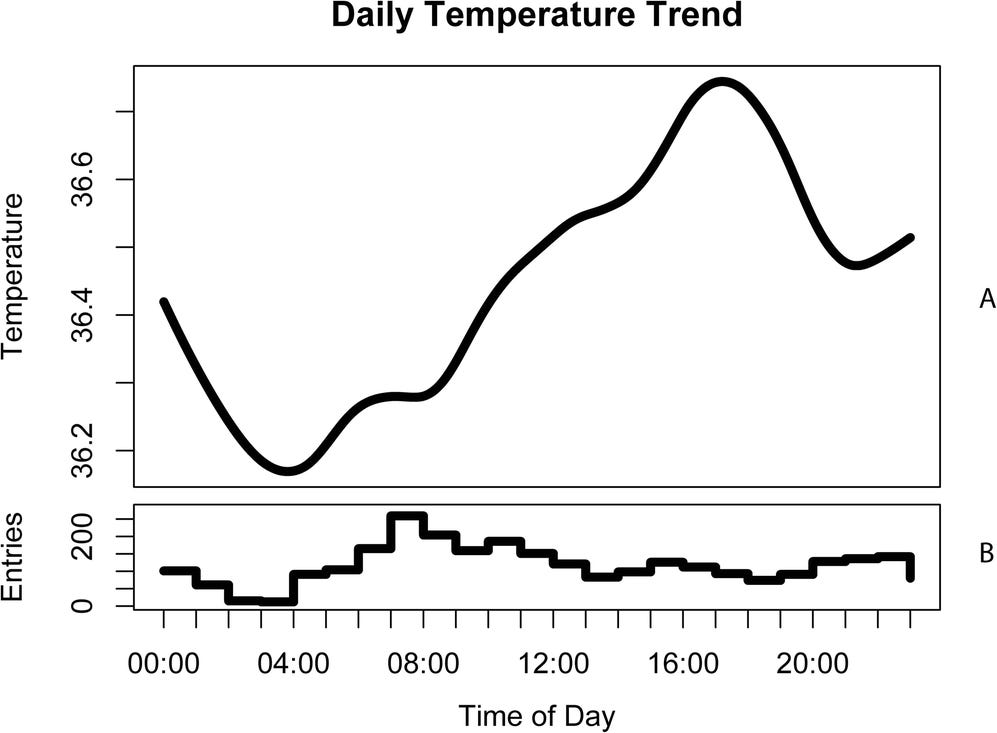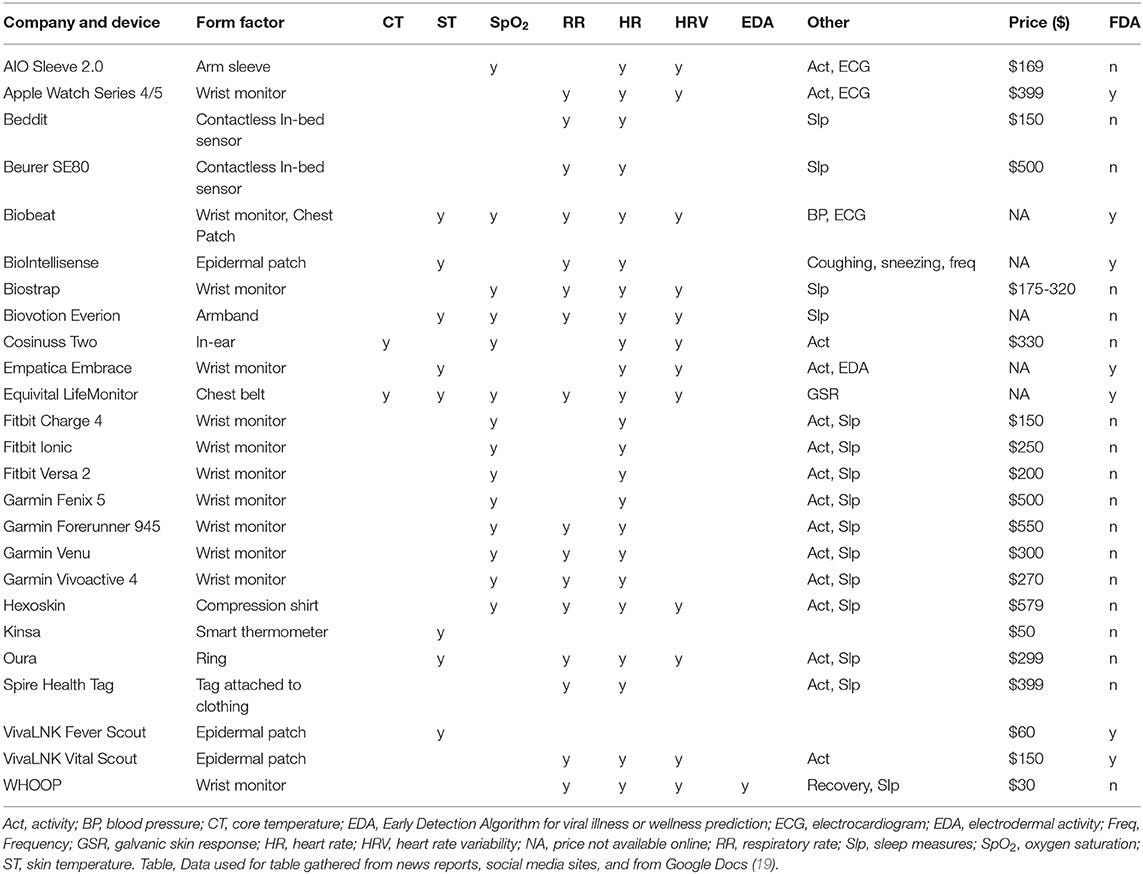Personal Science Week 230713 Temperature
Measuring body temperature to diagnose and predict illness
Personal Science emphasizes the quantitative over the qualitative, but sometimes knowing when to measure is as important as the measurement itself.
This week we discuss body temperature.
Temperature
Your mother always checked your temperature when she thought you seemed off…but why? If you feel crummy – achy, hot, a headache – then what new information do you have if you know the temperature?
The idea that “normal” body temperature is 98.6ºF (37ºF) comes from a German physician who in the 1860s measured something like 25,000 people to come up with the numbers most people still uses today. WebMD experts define “fever” as anything over 100.4ºF (38ºC); above 104ºF, they say, requires intervention.
But how accurate are those numbers? Only 8% of healthy volunteers in one study had a body temperature of exactly 98.6. A large 2011 study also showed significant differences corresponding with age, particularly among women.
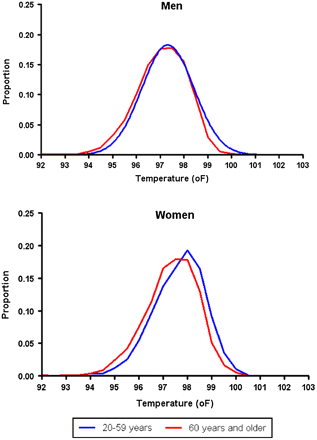
The time of day matters too. Boston Children’s Hospital scientists developed the FeverPrints project to collect temperature data from volunteers using an iPhone app, and found almost one Fahrenheit degree of difference.
And do we even agree on the best way to measure your temperature? Is the temperature in your mouth the same as under your arms or on your forehead? If the numbers are different, how much variance before we start to suspect something is wrong?
For electronic temperature tracking, Kinsa Health has everyone else beat. Their line of low-cost thermometers (about $25) let you quickly and accurately measure your temperature and optionally send it to their nationwide network so you can see which parts of the country are showing above-average numbers. (https://healthweather.us/map)
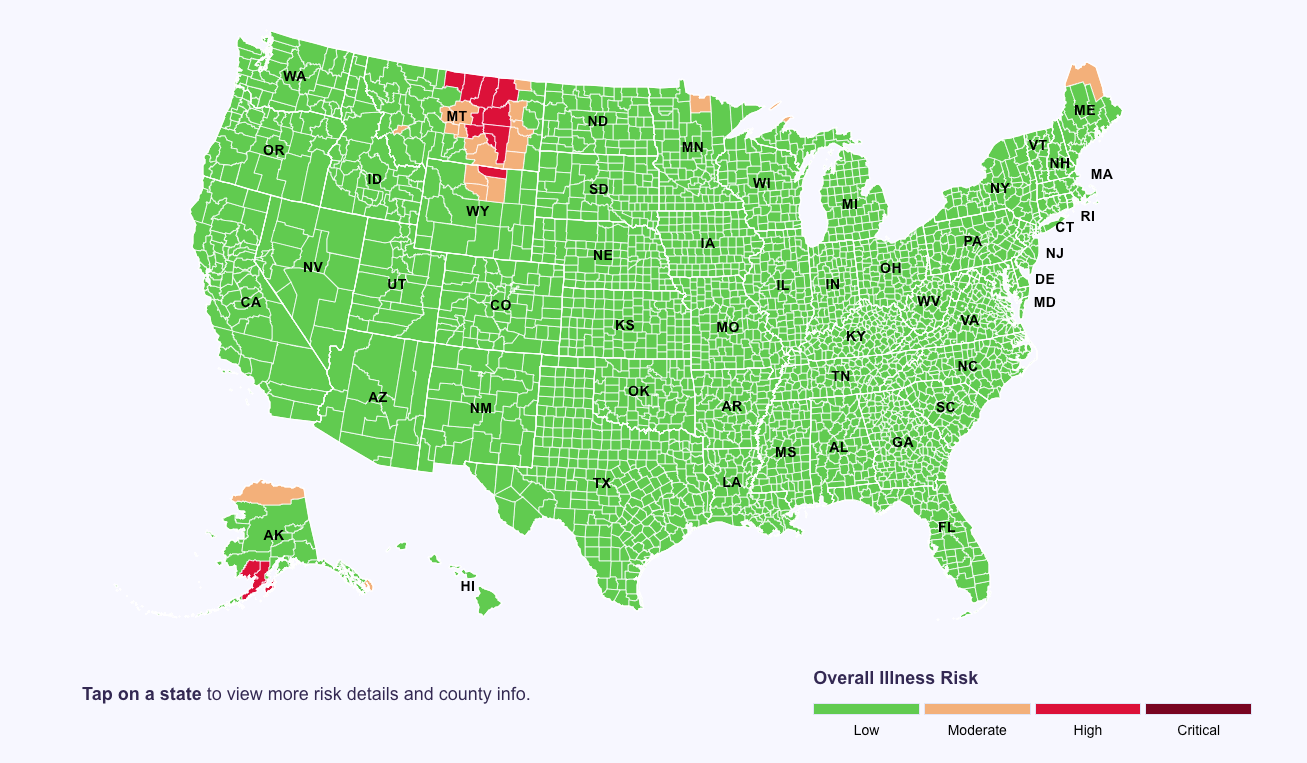
During the COVID-19 pandemic, hundreds of crowd-sourced temperature gathering organizations popped up (e.g. Quantified Flu from JOGL). Stanford University’s Snyder Lab claimed they were able to predict COVID with pre-symptomatic alerts in 80% of the confirmed cases.
Of course, many of those efforts were made early in the pandemic, before it was obvious how little it mattered. Most people got COVID regardless of whatever precautions they took, and now it’s not clear whether these crowd-sourced algorithms were very useful.
Self-tracking site Zenobase Founder Eric Jain has been measuring his body temperature daily for the past three years. He didn’t find any unexpected insights other than than some correlation with unusually hot or cold sleeping environments.
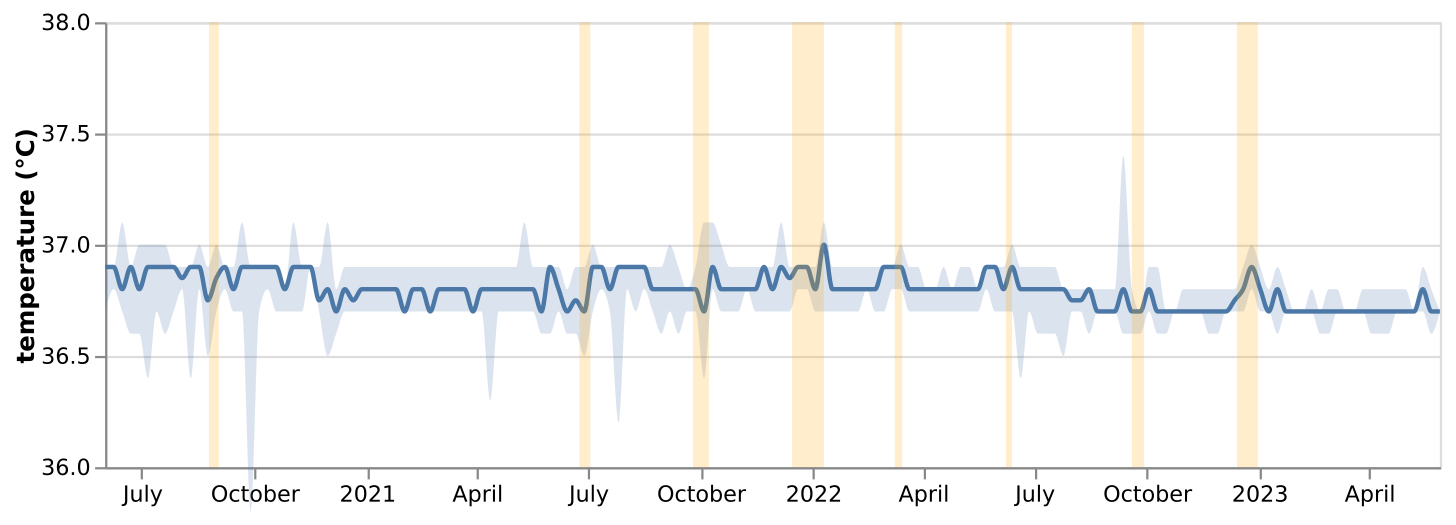
If you have have a high temperature, you’ll know it. With or without a thermometer, that achy feeling along with other symptoms are all you need to know that something’s not right. That fever is how your body is fixing itself, so before you take an aspirin or ibuprofen to feel better, be warned: you’re probably making things worse. A 2014 model published in the Proceedings of the Royal Society calculates that reducing fever may actually spread infectious disease and increase deaths.
Other Measurements
Speaking of fever and other symptoms of the flu, if you’re looking for up-to-date science-heavy summaries of other aspects of your physiology you can measure, Case-Western Researchers put together a list for COVID that breaks the various body measurements into categories and suggests various consumer devices that you might find useful.
We discussed the history of temperature-taking along with our review of Hasok Chang’s book on “complementary science” in Personal Science Week - 13 Oct 2022
About Personal Science
Listen to experts, but be skeptical. That’s the idea behind Personal Science, where we use the techniques of science to understand and solve personal questions. Often, but not always, Personal Science involves quantitative or statistical reasoning based on self-collected raw data, but the overall thought processes can apply to every aspect of daily life.
Our free newsletter is delivered each Thursday to everyone interested in science for personal rather than professional reasons. We also publish a series of “unpopular science” posts for paid subscribers only, where we discuss ideas that are too controversial for all but the most open-minded Personal Scientists. This week’s Unpopular Science post details a controversial method to develop immunity to anything.
As always, don’t hesitate to contact us if you have questions or ideas for future posts.



